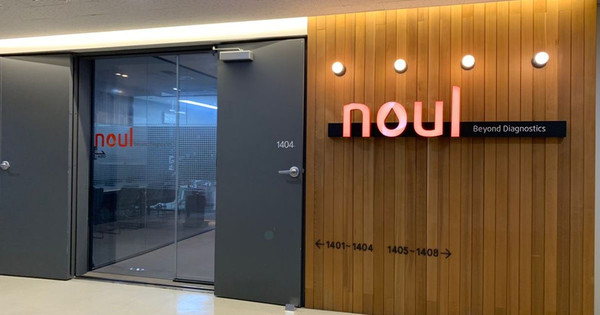Noul said it signed the memorandum of understanding (MoU) with Ghana Infectious Disease Center (GIDC) to cooperate on strengthening onsite malaria diagnostic capability in Ghana.
According to the company, Ghana’s population of about 30 million is exposed to the risk of malaria.

“There are more than five million malaria cases per year in Ghana, of which 30 percent of children under the age of five are infected,” the company said. “The Ghanaian government is receiving support from international aid organizations such as the Global Fund and MPI/USAID to eradicate malaria, and the annual budget for malaria eradication amounts to approximately $8.5 billion.”
Under the MoU, the two parties agreed to strengthen step-by-step collaborative activities for the introduction of Noul’s miLab diagnostics platform to local health facilities.
Noul’s miLab diagnostic platform is a compact all-in-one blood diagnosis platform that combines cartridge, solid-based next-generation staining and immunostaining stamping technology, and artificial intelligence.
Sample preprocessing, blood imaging, and reading functions are all performed within a miniaturized device, providing help in performing diagnostic tests in the field of blood and tissue cells in environments without large equipment or laboratories.
Collaboration activities include clinical validation, paper publication, local licensing, and public funding.
Noul will also provide the miLab diagnostics platform to the GIDC, and GIDC will work closely with related ministries, such as the National Malaria Program of Ghana.
“West Africa is where 55 percent of the world’s malaria cases are concentrated, and Noul has been actively entering the market,” Noul CEO David Lim said. “We have secured a foothold in the region by entering the Ghana market, following Nigeria and Cameroon.”
By signing an MOU with the GIDC, we expect cooperation activities with neighboring countries to gain momentum in the future, Lim added.
GIDC researcher Oliver-Commey Joseph also said, “The Ghanaian government is committed to providing adequate diagnosis for all suspected malaria cases, but it suffers from a lack of skilled personnel and infrastructure for diagnosis.”
Noul’s miLab diagnostic platform is suitable for Ghana’s malaria control program, which is to test, treat, and track, and is a solution that can contribute to strengthening the malaria diagnosis capability of local health facilities, Joseph added.

